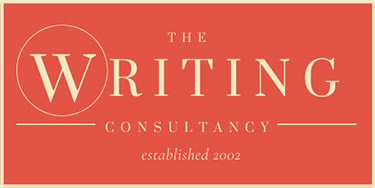Story is the single most important thing when writing a book. Even an agent can overlook the occasional typo and less-than-perfect grammar if the story is just right. A manuscript appraisal is all about story and structure.
What is a Manuscript Assessment?
A manuscript assessment is stage one of the editorial process. It is a form of developmental or substantive editing but in report format. Our version comes with additional manuscript annotations where relevant.

Missing out on this stage of the editing process means you could be missing out on transforming your book from a story to a page turner.
If, when a reader (or literary agent) dives into the pages of your book, they find plot holes, character inconsistencies, stakes that aren’t high enough or a conclusion that isn’t satisfying enough, it will be difficult to go back and address these issues. These are problems that need rectifying in the very initial stages of editing your manuscript.
This is exactly what the manuscript assessment is for. For more information read our article here about what exactly a manuscript assessment is and whether you need one for your book.
An editor, who hasn’t been as involved in the story as you, will be coming to the book afresh, with no prior knowledge of the characters, the plot or the setting, in exactly the same way a reader, or an agent, will be approaching your work.
They will bring up any potential objections the reader, or agent, may have, giving you the chance to pre-empt and quash those objections before they surface.

The report is all-encompassing but we have outlined a few of the areas that it covers below:
- Story premise
- Writing style
- Plot structure
- Narrative (big-picture narrative, POV & narrative style)
- Characterisation & dialogue
- Handling of exposition
- Tension, pace and forward momentum
The editor will also pick up on and cover in the report any other areas that may need addressing.
If you would like to look at anything specific in addition to these points our editors will include that in the report.
Fill out the form to find out the cost of a manuscript assessment – Prices start at £280. You are under no obligation to go ahead and one of our team will be in touch with editor details, current timescales and fees.
Follow up: You can come back to us with questions on your report. We find emails work best for this so that you have the answers in a format that you can keep referring back to. Or, if you would prefer, you can opt for the manuscript assessment plus 1-to-1 – see information below.
Application: You can apply the techniques in your report to any of your writing projects, vastly improving your skills as a writer – not just on that manuscript.
Who it’s for: The appraisal is ideal for writers who are either publishing traditionally and approaching literary agents or self-publishing, at early or final draft stage, but prior to editing.
Manuscript length: You can submit a full length manuscript, or, if you’re not ready for that and just want to see how you are doing, you can submit your first three chapters for our opening chapters’ appraisal.
How long it takes: An appraisal usually takes a minimum of three weeks but manuscripts need to be booked in to our schedule in advance as it fills up quickly.
How much it costs: Prices usually start at £280 for up to 10,000 words (this mostly applies to children’s manuscripts), £380 for up to 30,000 words and up to around £850 for a 100,000 word manuscript. We do not charge VAT on our prices.
Assessment Plus 1-to-1 call
For those who would prefer to chat with the editor on a 1-to-1 basis following the report, in some cases, availability permitting, we are able to set up a session call on Zoom with the editor. These calls are priced at £70 per call and last for one hour.

